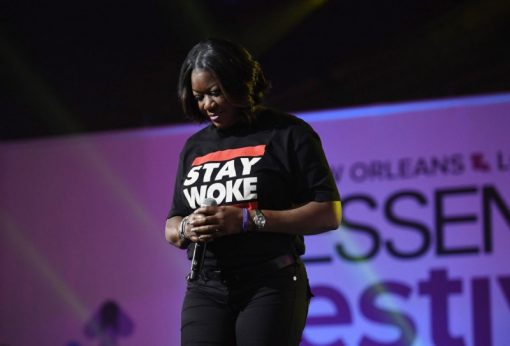
Late last month, two police officers in Hugo, Oklahoma, fired bullets into a truck containing four children.
Three of the children were shot. The 4-year-old was shot in the head. The 5-year-old has a skull fracture. The 1-year-old has gunshot wounds on her face.
The mother is grateful her children are alive. Her beautiful Black children, now trauma victims, victims of state violence, are alive.
In 2014, academics Stacey Patton and David J. Leonard published a survey of publicly available cell phone videos capturing citizen encounters with police. Their “Video Survey of Police Interactions: Inequality in Black and White” is, frankly, stunning. White people interacting with the police were shown to confront, challenge and mock officers. Openly. Confident in their privilege, in their right to live, they refuse to comply. They read the officers their rights. They demand respect. They not only survive the encounter, they also feel good after it is over, having showed the cops who’s boss.
A grown white man openly carrying two firearms along a suburban street refuses to put his cell phone down, refuses to show his identification and refuses, in the cop’s own words, to cooperate. He is treated with respect and is free to go. He survives, vindicated, and appears cocky in his extrication. This video in particular is difficult to watch without thinking of Tamir Rice, a 12-year-old openly playing with a toy gun in a snowy neighborhood park. Tamir cannot refuse to put his toy down, cannot refuse to show his school ID, cannot refuse to do as he’s told. He cannot refuse, but he also cannot comply. Tamir is a child, playfully lifting the snow to watch how it falls. But youth is not the only reason Tamir cannot choose to refuse or comply. The literal moment the police arrive, they shoot the boy dead.
What will Tamir’s mother — and all the other mothers who have lost their children to police violence in this country — do this Sunday, this one day on the calendar when we celebrate mothers?
Will the recently released Sandra Bland video trigger a certain trauma, one passed through the generations as an heirloom of dispossession? Will Tamir’s mother see the glowering face of the officer who arrested Sandra Bland, hear the officer growl, and imagine the hate that was the last thing her baby boy saw, heard, felt as he collapsed to the frozen whiteness that, mere minutes ago, had been his joy?
The Sandra Bland video is just as haunting as the Tamir Rice footage, just as eerie as the Trayvon Martin audio. And so what will Trayvon’s mother do this Mother’s Day? This mother, forced to endure the recorded sound of her child’s final, terror-induced cries? “Help!” he called as neighbors cowered, called 911, remained frozen in their confusion. If Trayvon’s mother sees the glowering face of the officer Sandra Bland feared, and so recorded, might she hear not the officer, not even Bland, but, instead, her own son’s scream, the echoes of her son’s last words, over and over in her head?
And, on this Mother’s Day, what of the grandmothers who not only mourned their children’s children, but have had to witness unnatural pain in their daughters, the women forced to bury their own? If Mertilla Jones, Aiyana Stanley-Jones’ grandmother, sees the Sandra Bland tape, will she feel the soft quiet of her granddaughter curled against her flesh, asleep as the warm glow of the television lights her brown face? Will she actually feel her grandchild in her arms as the glowering officer triggers her own trauma, the nightmare of a team of officers invading her home, silencing her child’s child forever? What will Aiyana’s mother be doing this Sunday?
So many survivor mothers have poured their full hearts into the community. Trayvon Martin’s mother is an activist. Oscar Grant’s mother is an advocate. Tamir Rice’s mother is building a youth center. Michael Brown’s mother ran for city council. Sandra Bland’s mother testified before Texas lawmakers to support the police reform bill drafted in her daughter’s name. They are out here, trying.
They are a testimony. Their babies did not deserve to die. Racism made each officer involved in their deaths a murderer. Racism made each officer involved in their deaths a lie.
So many lies.
A newly released report in the case of Oscar Grant confirms what cell phone videos already captured. The truth is there: A BART officer did escalate the tension, did instigate the conflict, did provoke Oscar Grant’s death. The system that enables the murder of Black and Brown children tells so many lies.
But we know the truth. Survivor mothers are our truth. Black Mothers — resourceful, loving, enduring, giving, talented, edifying, gorgeous Black women — today and every day, are a summation of the Divine. The spirits of their martyred children are breathing through their movement another truth — that Black Lives Matter.